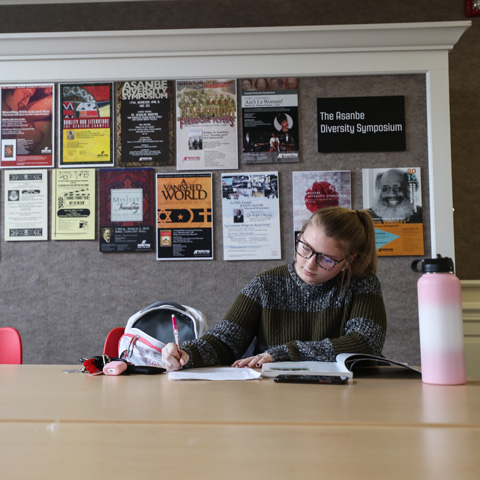Why Study Writing
The Bureau of Labor Statistics predicts that the number of jobs in technical writing and related fields will grow faster than jobs in any other field; job growth from now until 2030 is almost 12% faster than average. Job openings in PTC are most common in parts of the country with high-tech industry like California, Texas, and the Northeast, but Tennessee employs more technical writers than the national average, and the mean pay for technical writers is over $70,000 in Tennessee. Many of our former students have found successful careers in their field after graduation.
PTC faculty have decades of experience as educators, editors, and writers. They take pride in individualized success for students. Dr. Deeren is an award-winning fiction writer and professor. Dr. Fuglsby teaches technical communication courses and researches topics of collaboration and intercultural communication. Dr. Major is an important part of our internship opportunities and has published on international communication, on computer editing tools, and on collaboration. A technical writer since 1988, Dr. Wadia brings his wide experience to audiences at large regional conferences such as SCMLA. He frequently presents on issues related to workplace professionalism and tips for success with employment opportunities as technical writer or editor.
What You Can Expect
- Work with dedicated, caring faculty mentors
- Collaborate and explore with classmates
- Broaden your worldview by reading across cultures and professions
- Write and revise your own original, creative projects
- Practice professional editing and publishing
- Invest in internship opportunities
- Engage with visiting authors and industry experts
- Enhance your critical thinking and communication skills
- Choose from a variety of courses across genres and styles
- Participate in local, regional, and national conferences
- Compose a great resume, write effective application letters, and learn great interviewing techniques
- Prepare effective oral presentations using PowerPoint, Canva, and other software
- Prepare documentation for training manuals and write briefing reports
- Apply desktop publishing skills to create marketing and PR materials
- Create effective workplace documents such as professional correspondence, reviews, reports, proposals, policies, and digital and social media content
- Critically analyze the needs of particular audiences
- Expand online and library research skills
What Will I Learn
- Clear, persuasive writing
- Document genres and formats
- Collaboration
- Research skills
- Comprehend the nuances of language and rhetoric in the workplace
- Apply desktop publishing skills to create marketing and PR materials
- Create effective workplace documents such as letters, emails, and memos
- Sharpen proofreading skills for a goal of zero tolerance in TW documents
- Discern shades of meaning in homonyms and commonly confused words (disinterested vs. uninterested)
- Write effective documentation for training materials and briefing reports
- Edit graphical items and objects
- Writing effective proposals and policies
- Understand effective social media strategies
- Edit closely at the sentence, paragraph, and essay level using a variety of rhetorical techniques and strategies
- Understand how the collaborative writing process has pros and cons
- Understand the glossary of the professional writing industry and English and foreign nomenclature related to technical writing
- Improve chances of employment after learning good interviewing techniques
- Prepare a good resume and write effective application letters
- Prepare effective oral presentations using PowerPoint, Canva, and other software
Program Information
Professional, Technical, Creative Writing Program Requirements
English: Professional, Technical, Creative Writing Sample 4 Year Plan
